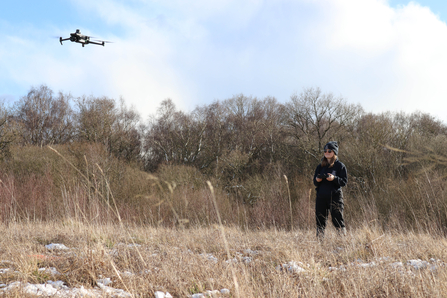
New drone at West Chevington. Image by Duncan Hutt.

New drone at West Chevington. Image by Duncan Hutt.
Unlike previous surveys on the Trust’s reserves which have been carried out via a combination of people on the ground and aerial satellite images, it will be the first time the organisation will have used a such a device.
The surveys on the 327-hectare Druridge Bay site will check habitats, water quality, water levels and flood risk and plant health - the results of which will contribute to future management plans for the site.
Using a drone not only speeds up the survey work it also significantly reduces the damage to habitats from footfall and also to staff who may slip or fall over on any uneven ground.
In addition, drone images which are more precise and a much better quality can be used in the analysis of plant health and how it is affected by environmental impacts such as climate change and adverse weather.
Alice McCourt, Northumberland Wildlife Trust Conservation Officer says:
“Drone technology has come on in leaps and bounds in the past couple of years so it made sense for us to start using one for our survey work.
“The West Chevington site is currently a mosaic of woodland, grassland and lower-quality arable land with a system of ponds, ditches and streams so there will certainly be things worth surveying once the snow clears.
"There are also plans to create and restore wildflower meadows and grasslands to boost pollinators including bees and butterflies, develop wetlands and watercourses to improve water quality and reduce flooding downstream, and enhance ponds with reed beds to encourage birds and other species.”